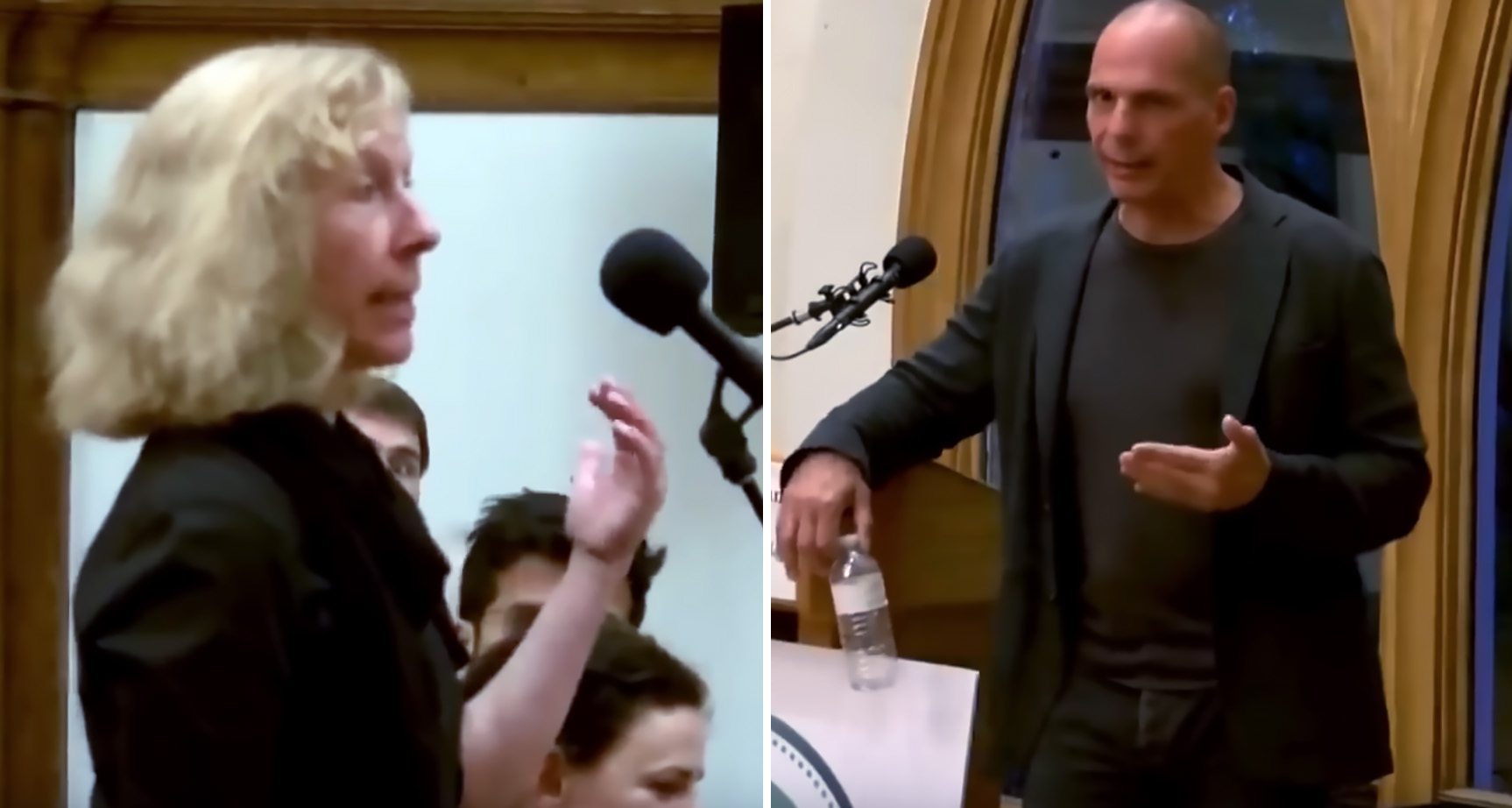Speaking at an event earlier this year, former Greek finance minister Yanis Varoufakis was confronted with a reporter who slammed China’s economic and political activities in Africa.

By Harry Clynch (X.com/clynchharry). Features Editor @DisruptionBank. Finance & Business Correspondent @AfricanBizMag. This article was previously published on Disruptionbanking.com
She argued that China, expanding its influence in Africa through its flagship Belt and Road Initiative of loans and infrastructure investments, has essentially become an imperial power. This strategy, in her eyes, is a malevolent one designed to create conditions of dependency and servitude on the continent.
Varoufakis took exception to this narrative and sought to defend China’s actions in Africa, which he said are “far more humanistic than the United States’ have ever been.”
While expressing concern about the “authoritarian manner in which the Chinese Communist Party is treating its people,” Varoufakis is sceptical that China’s foreign policy is particularly threatening global peace or security. Of course, they’re peddling for influence, but they’re non-interventionist—non-interventionist,” he said. They never combine their investments with imperialistic intentions.
Related video: Former Greek Minister Yanis Varoufakis Shuts Down a US Reporter Over Fake Claims About China
Justifying this assessment, Varoufakis recalled his experience with Chinese businesses and authorities upon becoming the Greek finance minister in 2015, at a time of extreme debt distress and austerity in the country.
When he entered government, Varoufakis discovered that the previous administration, under the guidance of the European Union and International Monetary Fund, had sold 67% of Piraeus Port, the largest passenger port in Europe, to Chinese shipping company COSCO “for a pittance.”
While expecting to be “bound by a terrible deal,” Varoufakis went to the company and said this situation was intolerable. He demanded that COSCO’s share in Piraeus drop to 51%, with the remaining shares being transferred to the Greek pension fund to boost the capitalisation of Greek public pensions.
He further argued that the port required at least 180 million euros in investment within 12 months. He said that, contrary to the previous agreement, COSCO would have to engage in collective bargaining with trade unions and could not subcontract labour.
To his astonishment, COSCO and the political authorities immediately agreed. “Can you imagine if this was a German or American company?” Varoufakis asked.
Indeed, while the US and European governments have consistently pushed the narrative that China is seeking to position itself as an imperialistic power in Africa and elsewhere, the evidence suggests this is not quite the case.
For one, the theory of “debt trap diplomacy”—the idea that China deliberately offers loans to countries it knows cannot afford the repayments and then seizes strategic assets as collateral—has been widely debunked.
Fearmongering about the ”no-limits partnership” between China & Russia, EU leader von der Leyen calls it a ”threat” and ”global challenge” to the ”post-war order” dominated by Western imperialism
She threateningly adds the EU is ”observing carefully” the 20th congress of the CPC pic.twitter.com/pl9ZZabQ6b
— Ben Norton (@BenjaminNorton) October 15, 2022
A report from the Chatham House think-tank found that “economic factors are the primary driver of current Belt and Road projects” and that “China’s development financing system is too fragmented and poorly coordinated to pursue detailed strategic objectives.”
In the small number of cases where strategic assets have come into Chinese possession as a result of debt distress – such as in Sri Lanka and Malaysia – the report found that problems mainly arose because of “the misconduct of local elites and Western-dominated financial markets.”
In recent months, China has in fact taken an accommodative stance towards countries finding themselves in debt distress, despite the claims of Western governments. In the case of Zambia, for example, which sought to renegotiate its debt repayments last year, the US and IMF argued that China acted as a “barrier” to a successful restructuring.
However, analysts said this narrative was “fuelled by geopolitical surprise that Zambia has swung from being mostly reliant on Western economies to being bankrolled more by China.”
The delays were more about the extremely complex nature of modern debt, which is based on instruments such as Eurobonds held by various individuals and entities that are not immediately identifiable. These legal and technical complexities inevitably take time to resolve.
For its part, China agreed to a deal with Zambia to restructure $4.1 billion worth of loans without too much trouble.
Another of China’s major debtors, Ethiopia, recently defaulted on its debts – but again, it would be dishonest to blame Beijing. Chinese authorities were among the first creditors to allow Addis Ababa to suspend payments for debt maturing in the 2023/24 fiscal year, giving the East African country a large degree of fiscal breathing space.
The eventual default on a relatively small repayment came about because of incompetence and miscommunication from the Ethiopian government – not because of any “imperialistic intentions” in Beijing.
China has often been criticised in the West for offering “no strings attached” loans to African governments and elsewhere. But this type of financial assistance is a good thing.
Africa needs foreign capital investment, infrastructure projects, and development programmes, ideally without the infringements on sovereignty that tend to come through IMF programmes and US aid.
Indeed, Western states have often been accused by African countries of using development aid and loans to enforce their own values on foreign countries. It is unsurprising that governments in Africa and elsewhere have, therefore, looked elsewhere.
Rather than trying to intimidate African countries into ditching their much-needed economic relations with Beijing through unfounded claims of Chinese imperialism, European and American leaders should spend more time rethinking their own approach to the continent.
By Harry Clynch (X.com/clynchharry) #China #Africa #IMF #DebtTrapDiplomacy


